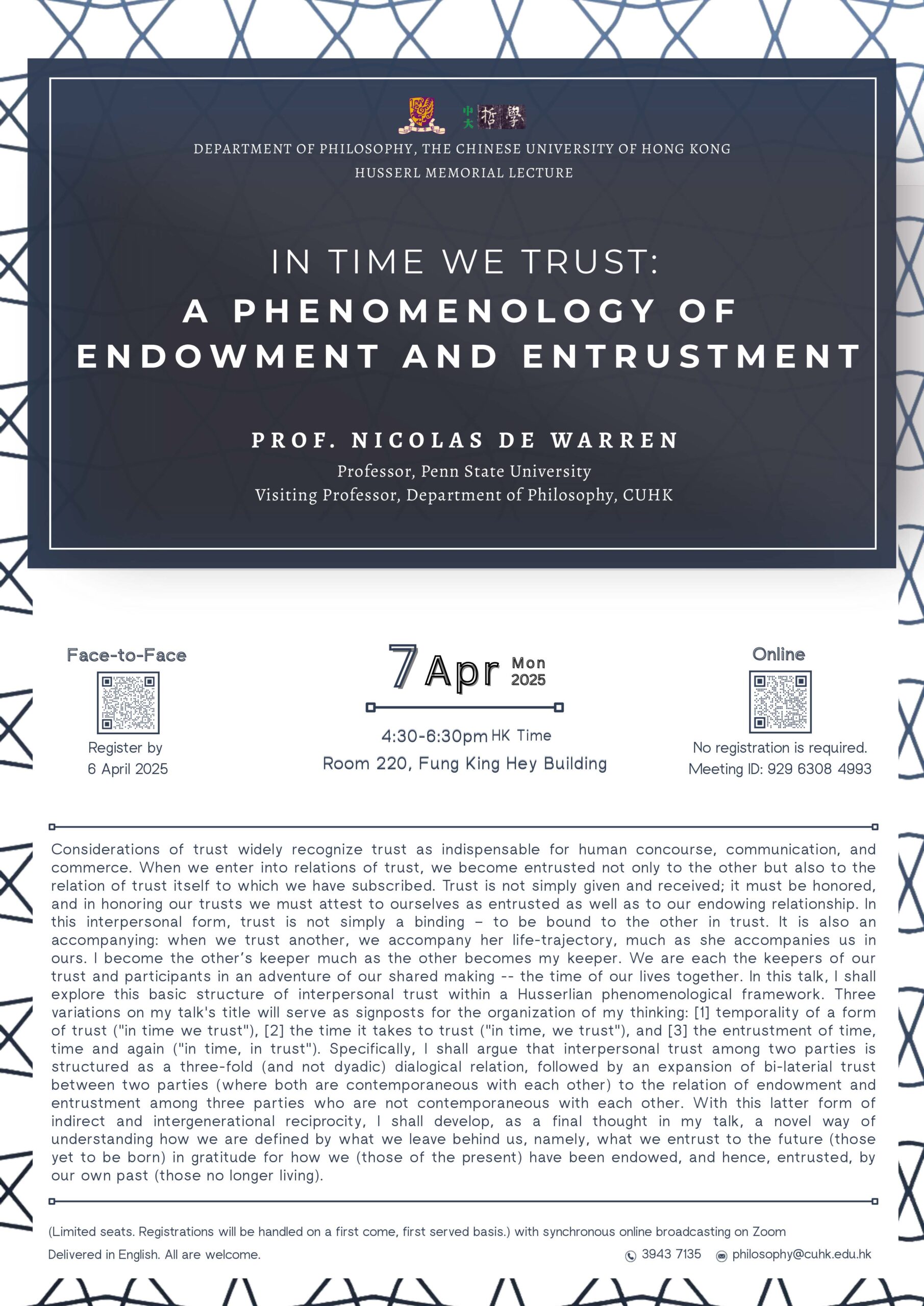In Time We Trust: A Phenomenology of Endowment and Entrustment (Husserl Memorial Lecture)

Prof. Nicolas de Warren |
|
4:30pm-6:30pm HK Time |
|
Room 220, Fung King Hey Building with synchronous online broadcasting on Zoom |
Joining the Seminar face-to-face:
Limited seats for face-to-face seminar. Registrations will be handled on a first come, first served basis.
Register by 6 April 2025: https://cloud.itsc.cuhk.edu.hk/webform/view.php?id=13707721
Joining the Seminar online:
No registration is required.
Link: https://cuhk.zoom.us/j/92963084993
Meeting ID: 929 6308 4993
Enquiries:
Tel: 3943 7135
Email: philosophy@cuhk.edu.hk
Abstract:
Considerations of trust widely recognize trust as indispensable for human concourse, communication, and commerce. When we enter into relations of trust, we become entrusted not only to the other but also to the relation of trust itself to which we have subscribed. Trust is not simply given and received; it must be honored, and in honoring our trusts we must attest to ourselves as entrusted as well as to our endowing relationship. In this interpersonal form, trust is not simply a binding – to be bound to the other in trust. It is also an accompanying: when we trust another, we accompany her life-trajectory, much as she accompanies us in ours. I become the other’s keeper much as the other becomes my keeper. We are each the keepers of our trust and participants in an adventure of our shared making — the time of our lives together. In this talk, I shall explore this basic structure of interpersonal trust within a Husserlian phenomenological framework. Three variations on my talk’s title will serve as signposts for the organization of my thinking: [1] temporality of a form of trust (“in time we trust”), [2] the time it takes to trust (“in time, we trust”), and [3] the entrustment of time, time and again (“in time, in trust”). Specifically, I shall argue that interpersonal trust among two parties is structured as a three-fold (and not dyadic) dialogical relation, followed by an expansion of bi-laterial trust between two parties (where both are contemporaneous with each other) to the relation of endowment and entrustment among three parties who are not contemporaneous with each other. With this latter form of indirect and intergenerational reciprocity, I shall develop, as a final thought in my talk, a novel way of understanding how we are defined by what we leave behind us, namely, what we entrust to the future (those yet to be born) in gratitude for how we (those of the present) have been endowed, and hence, entrusted, by our own past (those no longer living).
Delivered in English.
All are welcome.




